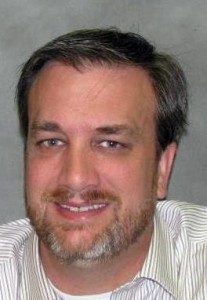Pulling Together for Better Quality and Safety

Craig Wieberdink, Director of Integrated Management
If you’ve seen a new face around the facility, don’t be surprised! Meet Craig Wieberdink, the new Director of Integrated Management at GIW. With a career that has taken him from Minnesota to Michigan to Georgia, and with experience in the aerospace industry, reliability engineering, and supplier relationships and management, we are glad to have him join our team.
While his professional experience is extensive, Wieberdink also has honed his leadership, coaching, and crisis management skills by raising eight children. So when you see him in the hall, be sure to ask him about them.
“It’s the best way to get me talking,” Wieberdink says.
Integrated Management
GIW is excited to embrace a new management style, and Wieberdink has been tasked with setting it in motion. Integrated Management involves bringing safety, quality, and environmental policies and practices under one umbrella.
Vice President of Operations Thomas Mueller explains that this joining makes sense as more and more regulations that govern safety and quality are merging. Our parent company, KSB, implemented Integrated Management several years ago with excellent results, so GIW has a ready example to study.
There are many advantages to Integrated Management — one of which is reduced burden of documentation. Wieberdink says, “Having all documentation controlled centrally means that people can go to one document instead of two or three to get answers to everyday questions.”
Additionally, site visits and compliance audits will be more efficient when safety, quality, and environmental concerns are addressed at the same time.
Improved supplier quality
One of the best outcomes of Integrated Management is that it can foster better experiences with suppliers. Simpler documentation will make communication with suppliers easier, ensuring better results.
Supplier relationships are a major area of focus for GIW as we expand our global reach. Weaknesses in communication is the main culprit in difficult to manage supplier relationships. At GIW, as in many other companies, workers get used to quickly calling a coworker if a question arises. Internally, we use the same language and terminology, and we share the same context. Our people are experts, and we rely on them having the knowledge we need – in their heads. This is called “tribal knowledge.”
But unfortunately, outside suppliers aren’t privy to this vast pool of knowledge. So when communication between GIW and suppliers is not crystal clear, that’s when issues may arise.
“The consequences are huge,” Mueller explains. A wrong part made in China may not be noticed until six months after the fact, resulting in potential delays of up to a year in the entire supply chain. Integrated Management will enable us to clearly communicate consolidated, detailed documentation, and processes to avoid costly supplier mishaps.
First steps
Right now, Wieberdink is busy learning all about GIW and the culture here. And he likes what he sees.
“I love helping companies become better at what they do. It’s exciting at GIW because we are well poised to move to that next level. The people here are very good. They know their business,” Wieberdink says.
During these preliminary staged of Integrated Management, Wieberdink is developing focus areas — those areas that are critical to the success of the move. Then step-by-step improvements will be made in each focus area. So how do we address these focus areas?
“Meetings. I hate to say it, but a lot of meetings,” Wieberdink laughs.
But the point here is to get input and ideas from all of the employees here at GIW. “I’ll offer ideas like anybody else, but ultimately, the team has to decide what to do. Empowerment is big aspect of my leadership style,” Wieberdink says.
Achieving results
A change in company culture will be the most challenging part of this transition. An endeavor like Integrated Management doesn’t just happen overnight or behind closed doors. Cooperation from team members and the focus teams is necessary for the ongoing success of GIW.
“Everybody should win in this process,” Mueller says.
This process will take time, but the end result will be worth it.
“Systematic, smooth deployment gains a lot more respect than one that is knee-jerk and reactionary,” Wieberdink says.
Ultimately, moving to processes that integrate safety, quality, and environmental aspects will improve GIW as a whole. Sharing your ideas will help make this transition much easier.
“We all have ideas, and when they come up, tell me about them when you meet me in hall,” Wieberdink says.
Just be ready to look at pictures of his kids!
Craig Wieberdink, Director of Integrated Management
Thomas Mueller, P.E., Vice President of Operations

